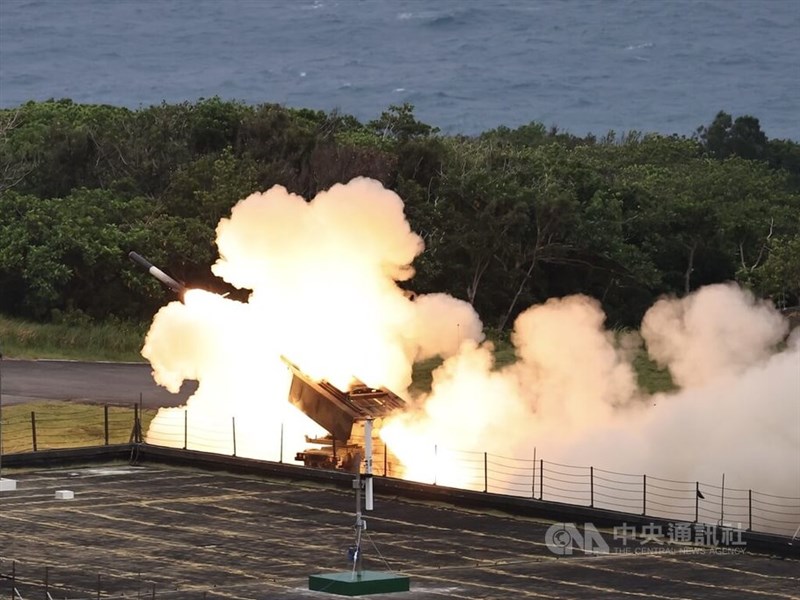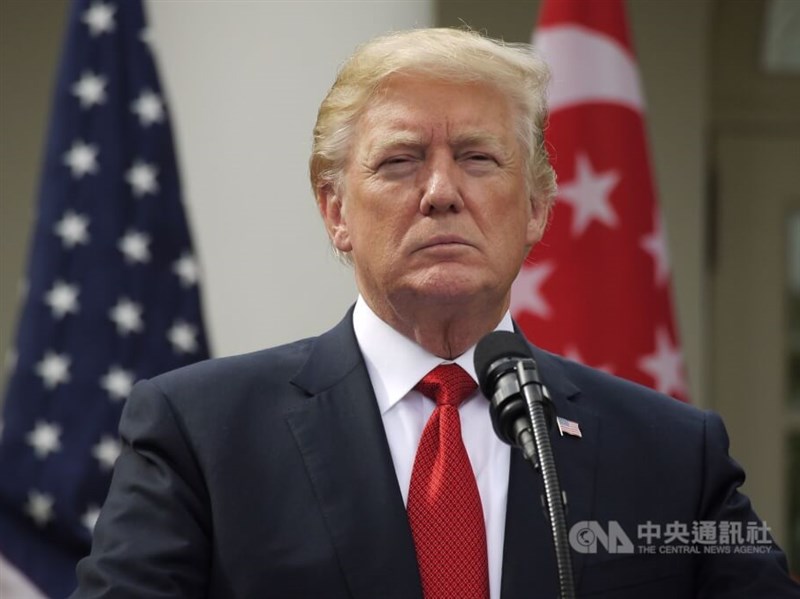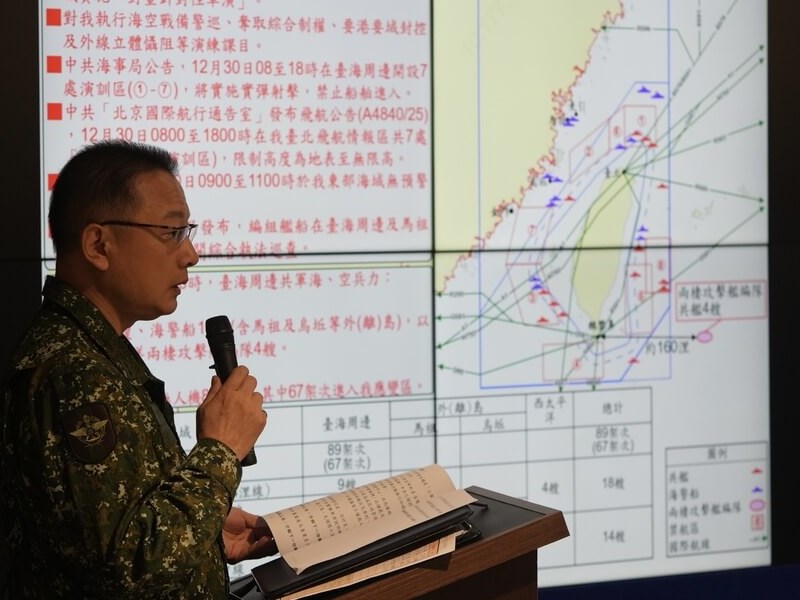DEFENSE/Experts laud Han Kuang drills for realism, discipline and practicality
07/21/2025 08:48 PM
The 2025 Han Kuang military exercises -- the longest in the history of the annual drills -- have drawn positive feedback for their emphasis on realistic combat training, higher troop visibility, and the debut of new military equipment, despite a few minor incidents during the 10-day period over which the exercises were held.
(Full text of the story is now in CNA English news archive. To view the full story, you will need to be a subscribed member of the CNA archive. To subscribe, please read here.)
More in DEFENSE
![U.S. arms deals in special budget total NT$900 billion: Deputy minister]() U.S. arms deals in special budget total NT$900 billion: Deputy ministerThe amount reserved for arms procurement from the United States in a proposed NT$1.25 trillion (US$39.6 billion) special defense budget is around NT$900 billion, Deputy Defense Minister Hsu Szu-chien (徐斯儉) said Thursday.01/15/2026 08:05 PM
U.S. arms deals in special budget total NT$900 billion: Deputy ministerThe amount reserved for arms procurement from the United States in a proposed NT$1.25 trillion (US$39.6 billion) special defense budget is around NT$900 billion, Deputy Defense Minister Hsu Szu-chien (徐斯儉) said Thursday.01/15/2026 08:05 PM![Trump 'not worried' as China stages live-fire exercises around Taiwan]() Trump 'not worried' as China stages live-fire exercises around TaiwanU.S. President Donald Trump said Monday that Chinese President Xi Jinping (習近平) had not informed him in advance of China's ongoing military exercises around Taiwan, adding that he was "not worried" about the operation.12/30/2025 12:19 PM
Trump 'not worried' as China stages live-fire exercises around TaiwanU.S. President Donald Trump said Monday that Chinese President Xi Jinping (習近平) had not informed him in advance of China's ongoing military exercises around Taiwan, adding that he was "not worried" about the operation.12/30/2025 12:19 PM![PLA drill areas within Taiwan's territorial waters: Taiwan military]() PLA drill areas within Taiwan's territorial waters: Taiwan militaryParts of all five of the drill zones designated by the People's Liberation Army (PLA) for live-fire drills Tuesday are within Taiwan's territorial waters, Taiwanese military officials said Monday, calling the move "irresponsible."12/29/2025 07:56 PM
PLA drill areas within Taiwan's territorial waters: Taiwan militaryParts of all five of the drill zones designated by the People's Liberation Army (PLA) for live-fire drills Tuesday are within Taiwan's territorial waters, Taiwanese military officials said Monday, calling the move "irresponsible."12/29/2025 07:56 PM
Latest
- Politics
TPP's Huang to continue chair duties while running for New Taipei mayor
01/30/2026 10:31 PM - Business
Taiwan economic growth hits 8.63% in 2025, highest in 15 years
01/30/2026 10:14 PM - Politics
Legislature passes amendment reserving 20% of social housing for newlyweds
01/30/2026 09:15 PM - Cross-Strait
Scholars see short-term dip in China war risk after Xi purges top general
01/30/2026 08:48 PM - Society
Taipei man dies of hantavirus; rodents near residence test positive: CDC
01/30/2026 08:31 PM


